
Employee Refuses To Stay After Work After Boss Introduces Ridiculous Rule
Interview With AuthorStaying at work after official hours are over shouldn’t be the norm. Yet, according to 2023 statistics, 49% of workers in the UK revealed that they do unpaid overtime. Whether that’s to impress their boss, finish up what they were working on, or just that something unplanned happens, it occurs more often than we might realize.
Recently, a woman shared a story about how her husband maliciously complied with his company’s overtime policy. As his working hours ended earlier than the rest of the team’s, he would sometimes need to stay for another 10 minutes or so – a scenario from the ‘something unplanned’ category. But when his manager unceremoniously informed him this clashed with the company’s policy, he decided to maliciously comply.
Bored Panda got in touch with the protagonist’s wife, who posted this story online, u/Loose_Alternative990. She kindly agreed to answer a few questions about the situation, so scroll down and read our conversation below!
A company rounded up their overtime in 15-minute segments, leaving one employee unpaid for his extra work
Image credits: BGStock72 / envato (not the actual photo)
When he found this out, he decided to maliciously comply with the policy and leave work on the dot
Image credits: nd3000 / envato (not the actual photo)
Image credits: Loose_Alternative990
The employee didn’t hold a grudge against the manager, as they were probably new to the organization
Image credits: Andrea Piacquadio / pexels (not the actual photo)
We were lucky enough to get in touch with the wife who posted her husband’s story. She says she just wanted to share a happy story with other netizens. “[My husband] told me the story, and I found the outcome very satisfying. Being a Redditor, I thought, ‘I know the perfect place for that!'”
In the story, the wife describes how her husband used to regularly stay after work to help his coworkers. “He didn’t mind helping but would rather have left on the dot,” the Redditor tells us. “He was young and eager to please, but the experience gave him the confidence to control when he offers the support. Nowadays, if an issue is not raised in enough time for him to deal with it before he finishes, it gets looked at the following day.”
Many commenters raised the concern that what the company was doing might be considered wage theft. The author clarifies that this wasn’t the case. “He was salaried so wouldn’t have lost money, but the additional fifteen minutes would build up and could help him out if something unprecedented came up that caused him to be late for work, like one of our kids being unwell.”
“I don’t know if I made that clear in my original post,” she admits. “I’m used to getting paid by the hour in my own work, so I interpreted his story as a wage theft issue until he clarified.”
After this ordeal, other employees started taking more interest in the overtime policy. “Someone in his team did a bit of digging and found that the policy actually said that a task that takes 7.5 minutes or more can be rounded up to 15 minutes but less would be rounded down. This was raised, and he restored the 15 minutes for each of those days,” the Redditor tells us.
At the end of the day, the man was understanding and didn’t blame his superior. “My husband believes that the manager genuinely didn’t know as he was fairly new to the organization himself, but he was a lot more careful since,” the author of the story told Bored Panda.
Companies should round up overtime to the nearest 15 minutes in seven-minute increments
Image credits: freestocks.org / pexels (not the actual photo)
After reading this story, one might wonder how rounding working hours works exactly. According to Salusky Law Group, this system is usually used for hourly employees. Just like the Redditor mentioned in our conversation, companies can choose to round up overtime if it’s from 8 to 14 minutes.
“Employee time from 1 to 7 minutes may be rounded down, and thus not counted as hours worked, but employee time from 8 to 14 minutes must be rounded up and counted as a quarter hour of work time,” according to the U.S. Department of Labor.
Such a system has its pros and cons. Let’s say an employee needs to start work at 7 a.m. If they arrive at 6:53, they lose 7 minutes of work because it would round forward to 7 a.m. And, the other way around: if an employee arrives at 7:07 a.m. when work actually starts at 7.00 a.m., the worker benefits under the rounding system.
There are two conditions for a rounding system. It should be neutral ‘on its face’ and ‘as applied.’ In essence, it should be favorable to the employees. If the overtime policy rounds time up for the benefit of the employee and the employer equally, it’s neutral ‘on its face.’
A ‘neutral as applied’ system shouldn’t be about balancing out overcompensation and under-compensation to the employee. That’s because such a rule would be too general, and companies should keep individual employees in mind.
Some might have a bigger workload than others, and employees in some departments may also be facing staff shortages and might need another kind of overtime policy. Hubstaff writes that companies might ensure fairness by setting the clock-in hour in the employee’s interest and the clock-out hour in their interest.
People in the comments had some questions
Many commenters congratulated the employee for carrying out his malicious compliance with resolve
Others shared similar overtime stories
If this was in the USA then they legally had to round up. If they track time in 15minute segments, which is very common, the FLSA states that 1 to 7 minutes can be rounded down, and 8 to 14 minutes must be rounded up. Not a new law either. It was enacted in 1938
Thank you for stating this, I thought everyone over 15 already knew it.
Load More Replies...If this was in the USA then they legally had to round up. If they track time in 15minute segments, which is very common, the FLSA states that 1 to 7 minutes can be rounded down, and 8 to 14 minutes must be rounded up. Not a new law either. It was enacted in 1938
Thank you for stating this, I thought everyone over 15 already knew it.
Load More Replies...
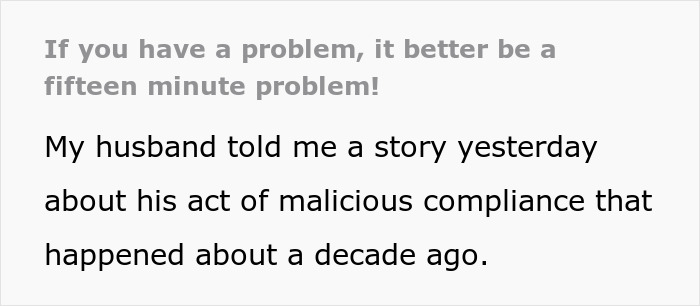
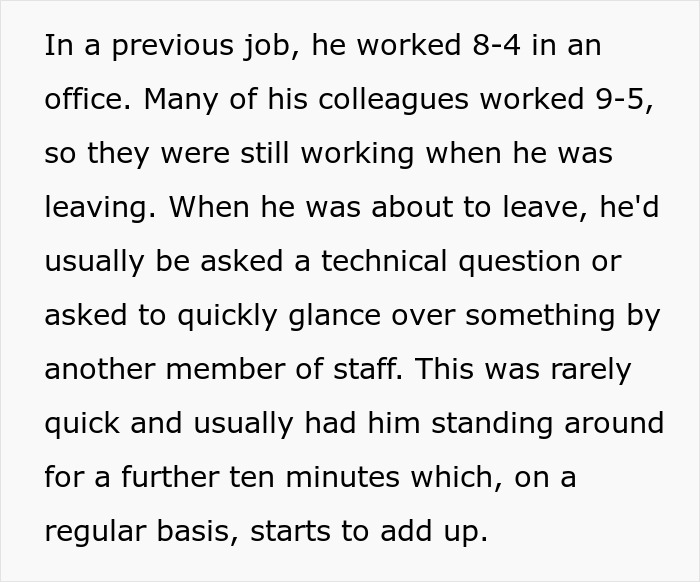
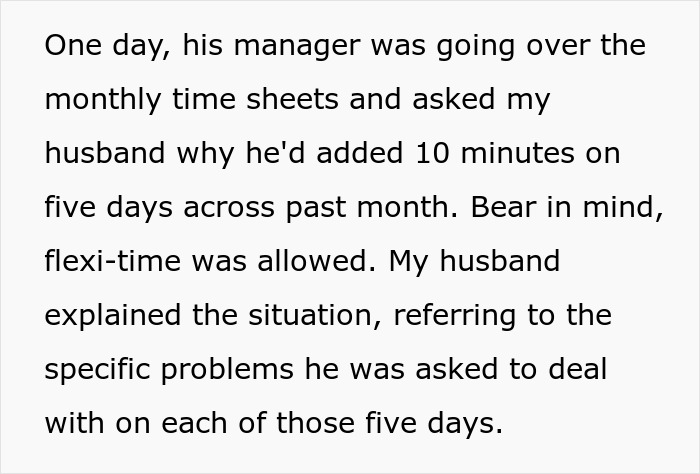
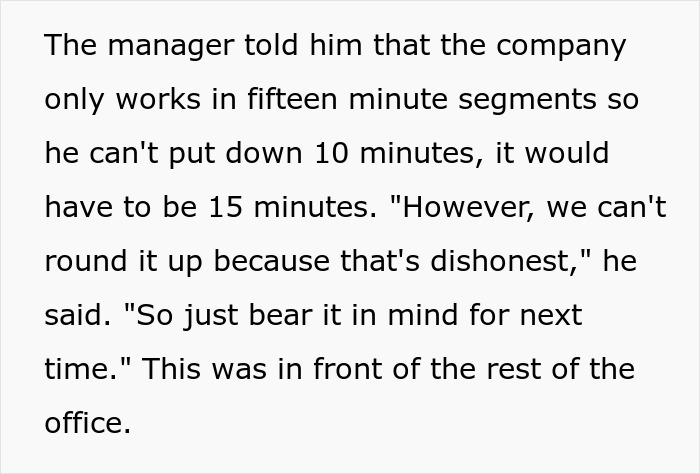

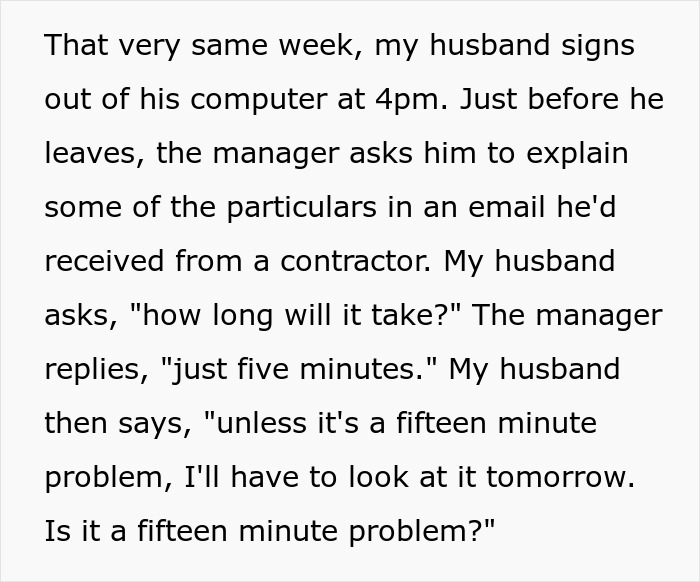

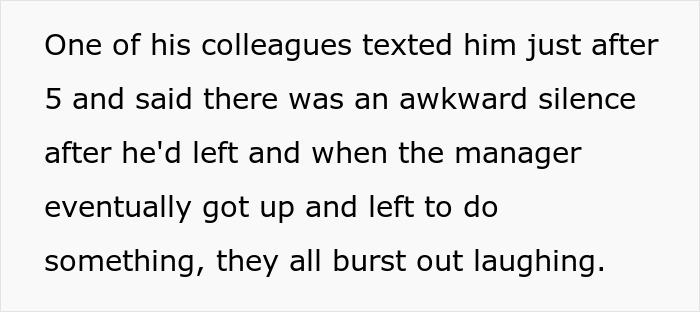


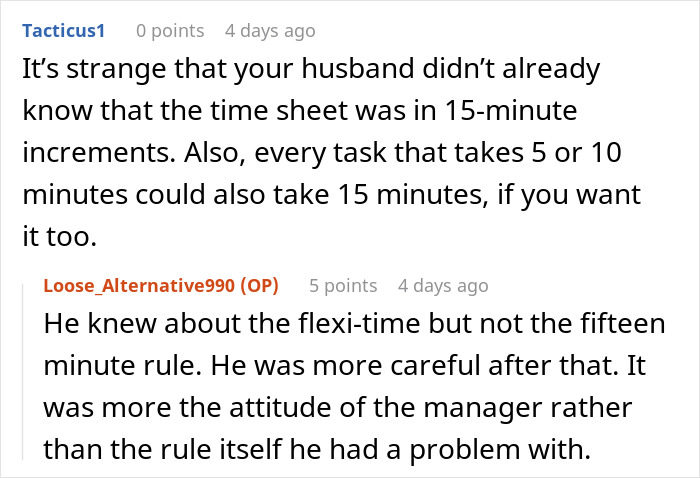









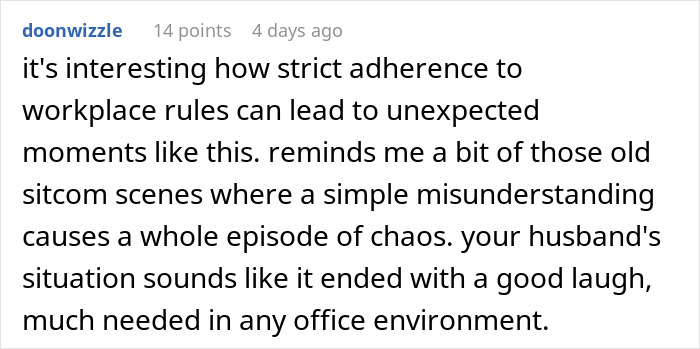
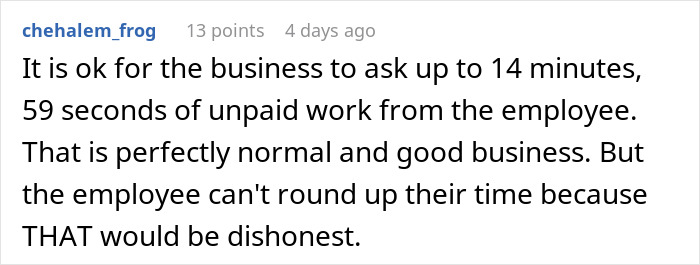
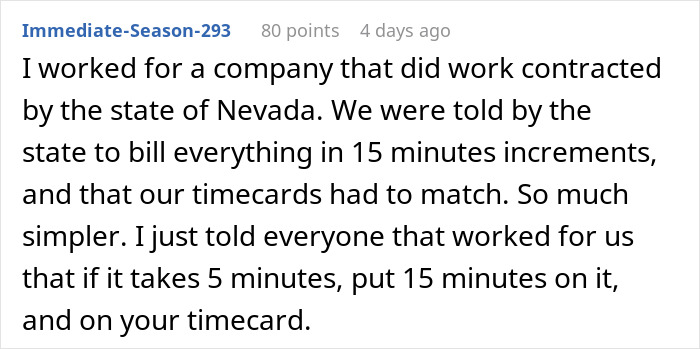
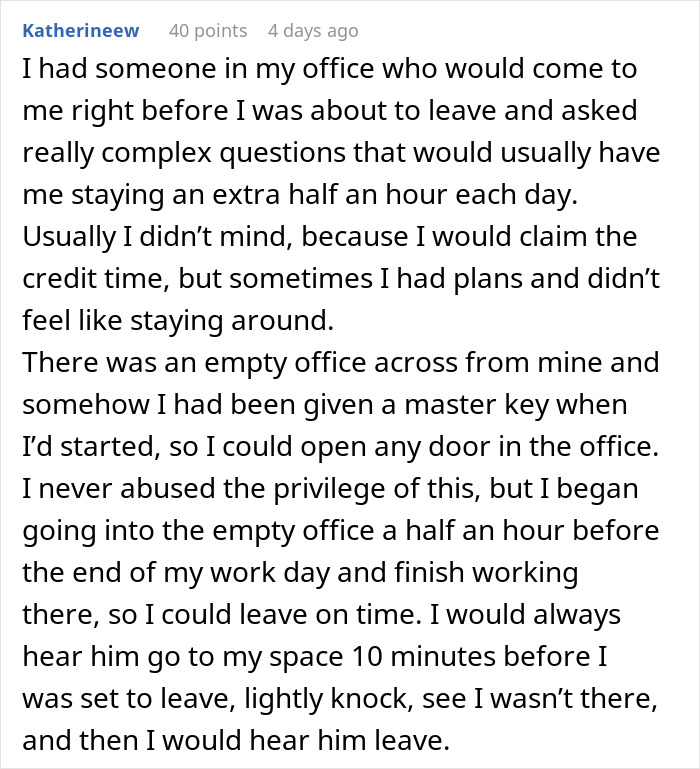
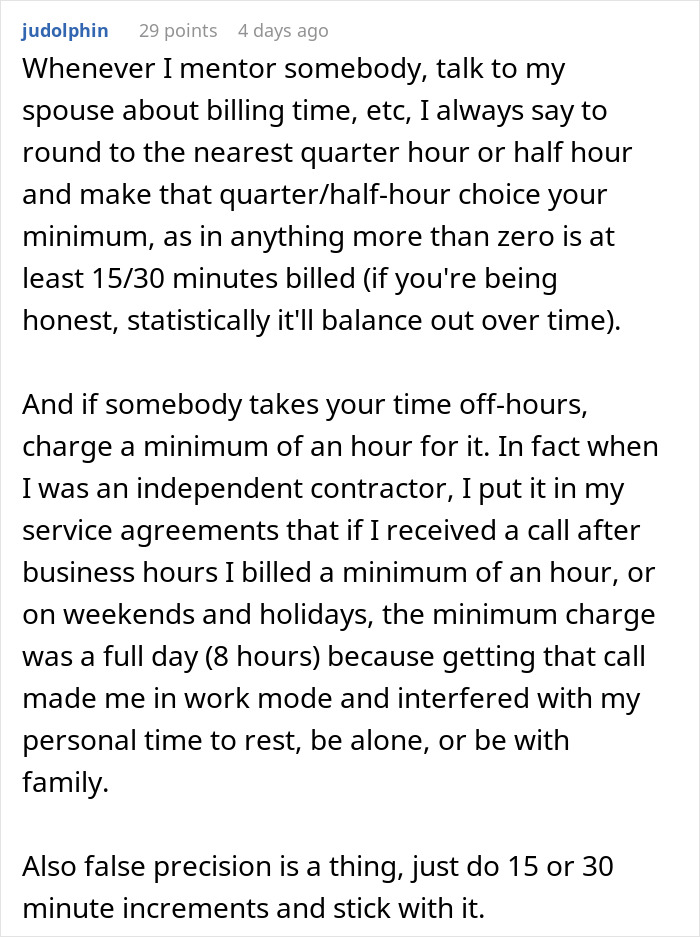
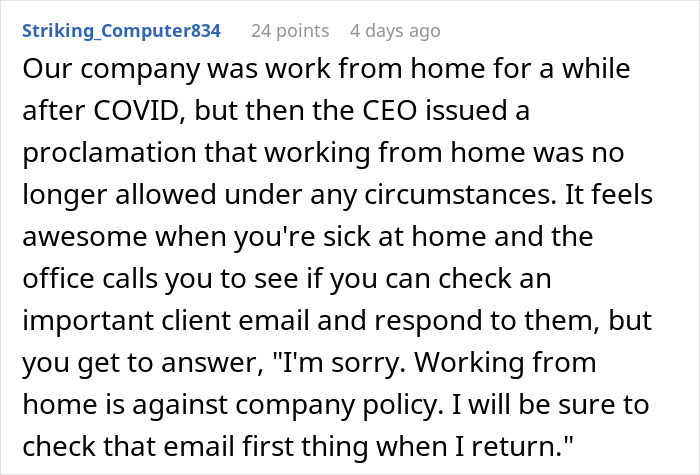
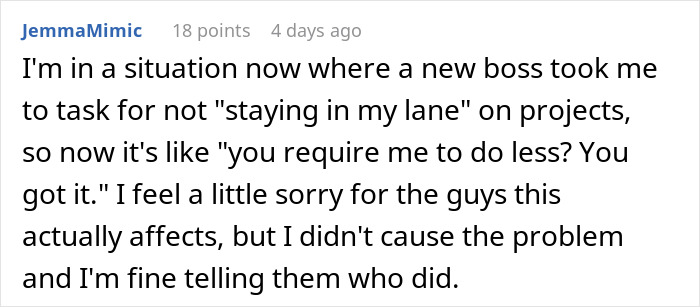














45
12